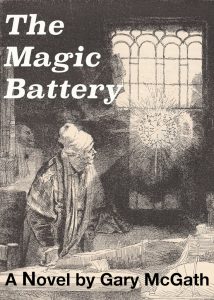Sergey Lukianenko and the Chengdu Worldcon
One of the guests at the 2023 Chengdu World Science Fiction Convention, Sergey Lukianenko, has attracted negative attention for his public support of Russia’s invasion of Ukraine. He is echoing the Putin line, smearing Ukrainians as “Nazis.” There have been calls to rescind his invitation.
From what I can tell, Lukianenko is a despicable person. His activity goes far beyond Cixin Liu’s excuses for China’s treatment of the Uyghurs. Cixin was just answering a question; Lukianenko is actively praising Putin’s brutal actions.
However, I don’t like the idea of withdrawing speakers’ invitations when their views are unpopular. I’d rather view his presence on the guest list as a symptom, a concrete example of what holding a Worldcon in China means. At a convention in any semi-free country, it would be great fun to have him speak before an audience and face merciless question after question about the invasion of Ukraine. I absolutely wouldn’t want him shouted down; that’s a confession of fear that people will hear what the speaker has to say. But having him face a fannish inquisition in the Q&A — I relish the thought.
(more…)

 Kiev comes from the Russian name for the city, Kyiv from its Ukrainian name. Both Russian and Ukrainian use the Cyrillic alphabet, so any version of the name in the Roman alphabet is a transliteration. With the current situation, using “Kyiv” is especially satisfying, since it rejects Russia’s claim to the nation. (So far, thankfully, I haven’t seen any claims that criticizing Russia is “red scare racist.”) We can safely say it’s the new standard spelling. For similar reasons, we now talk about “Ukraine” rather than “the Ukraine.” The latter suggests a region rather than a nation. A few other countries have a definite article in front of their names, but they’re ones where the name is a phrase (e.g., “the Netherlands,” “the United States”).
Kiev comes from the Russian name for the city, Kyiv from its Ukrainian name. Both Russian and Ukrainian use the Cyrillic alphabet, so any version of the name in the Roman alphabet is a transliteration. With the current situation, using “Kyiv” is especially satisfying, since it rejects Russia’s claim to the nation. (So far, thankfully, I haven’t seen any claims that criticizing Russia is “red scare racist.”) We can safely say it’s the new standard spelling. For similar reasons, we now talk about “Ukraine” rather than “the Ukraine.” The latter suggests a region rather than a nation. A few other countries have a definite article in front of their names, but they’re ones where the name is a phrase (e.g., “the Netherlands,” “the United States”).